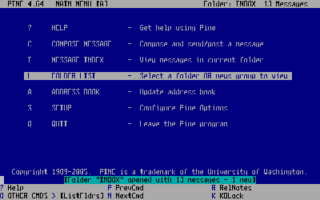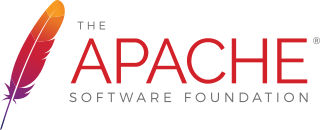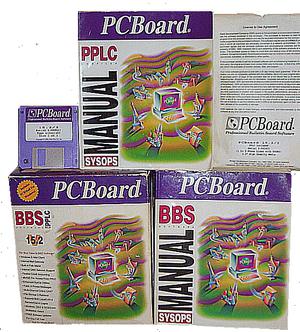Related Research Articles

Free software, libre software, libreware sometimes known as freedom-respecting software is computer software distributed under terms that allow users to run the software for any purpose as well as to study, change, and distribute it and any adapted versions. Free software is a matter of liberty, not price; all users are legally free to do what they want with their copies of a free software regardless of how much is paid to obtain the program. Computer programs are deemed "free" if they give end-users ultimate control over the software and, subsequently, over their devices.
The Open Source Definition (OSD) is a document published by the Open Source Initiative. Derived from Bruce Perens' Debian Free Software Guidelines, the definition is the most common standard for open-source software. The definition has ten criteria, such as requiring freely accessed source code and granting the open-source rights to everyone who receives a copy of the program. Covering both copyleft and permissive licenses, it is effectively identical to the definition of free software, but motivated by more pragmatic and business-friendly considerations. The Open Source Initiative's board votes on proposals of licenses to certify that they are compliant with the definition, and maintains a list of compliant licenses on its website. The definition has been adapted into the Open Knowledge Foundation's Open Definition for open knowledge and into open hardware definitions.
Shareware is a type of proprietary software that is initially shared by the owner for trial use at little or no cost. Often the software has limited functionality or incomplete documentation until the user sends payment to the software developer. Shareware is often offered as a download from a website. Shareware differs from freeware, which is fully-featured software distributed at no cost to the user but without source code being made available; and free and open-source software, in which the source code is freely available for anyone to inspect and alter.
Turbo Pascal is a software development system that includes a compiler and an integrated development environment (IDE) for the programming language Pascal running on the operating systems CP/M, CP/M-86, and MS-DOS. It was originally developed by Anders Hejlsberg at Borland, and was notable for its very fast compiling. Turbo Pascal, and the later but similar Turbo C, made Borland a leader in PC-based development tools.

Pine is a freeware, text-based email client which was developed at the University of Washington. The first version was written in 1989, and announced to the public in March 1992. Source code was available for only the Unix version under a license written by the University of Washington. Pine is no longer under development, and has been replaced by the Alpine client, which is available under the Apache License.

The Apache License is a permissive free software license written by the Apache Software Foundation (ASF). It allows users to use the software for any purpose, to distribute it, to modify it, and to distribute modified versions of the software under the terms of the license, without concern for royalties. The ASF and its projects release their software products under the Apache License. The license is also used by many non-ASF projects.

GNU Wget is a computer program that retrieves content from web servers. It is part of the GNU Project. Its name derives from "World Wide Web" and "get". It supports downloading via HTTP, HTTPS, and FTP.
A patch is data that is intended to be used to modify an existing software resource such as a program or a file, often to fix bugs and security vulnerabilities. A patch may be created to improve functionality, usability, or performance. A patch is typically provided by a vendor for updating the software that they provide. A patch may be created manually, but commonly it is created via a tool that compares two versions of the resource and generates data that can be used to transform one to the other.
WWIV was a brand of bulletin board system software popular from the late 1980s through the mid-1990s. The modifiable source code allowed a sysop to customize the main BBS program for their particular needs and aesthetics. WWIV also allowed tens of thousands of BBSes to link together, forming a worldwide proprietary computer network, the WWIVnet, similar to FidoNet.

PCBoard (PCB) was a bulletin board system (BBS) application first introduced for DOS in 1983 by Fred Clark's Clark Development Company. PCBoard was one of the first commercial BBS packages for DOS systems, and was considered one of the "high end" packages during the rapid expansion of BBS systems in the early 1990s. PCB was used as the basis of some of the largest bulletin board systems of the era, like Canada Remote Systems.
ARC is a lossless data compression and archival format by System Enhancement Associates (SEA). The file format and the program were both called ARC. The format is known as the subject of controversy in the 1980s, part of important debates over what would later be known as open formats.

Maximus is a bulletin board system, originally developed by Scott J. Dudley through his company, Lanius Corporation. The software was first written and released for both MS-DOS and OS/2, with later versions supporting 32-bit Windows operating systems. The MS-DOS version interfaced with the serial port through a FOSSIL driver. Version 1.0 was released in 1990, with versions 2.0 and 3.01 following in 1991 and 1995. The source code for Maximus and its companion utilities, such as Squish, was released under the GNU General Public License in 2002. It has since been ported to run under Linux, and other Unix-like operating systems.

The history of free and open-source software begins at the advent of computer software in the early half of the 20th century. In the 1950s and 1960s, computer operating software and compilers were delivered as a part of hardware purchases without separate fees. At the time, source code—the human-readable form of software—was generally distributed with the software, providing the ability to fix bugs or add new functions. Universities were early adopters of computing technology. Many of the modifications developed by universities were openly shared, in keeping with the academic principles of sharing knowledge, and organizations sprung up to facilitate sharing.
GT Power is a bulletin board system (BBS) and dial-up telecommunications/terminal application for MS-DOS. It was first introduced in the 1980s by P & M Software, founded by Paul Meiners. GT Power can be used both to host a BBS as well as to connect to other BBS systems via its full-featured dial-up "terminal mode". GT Power was a shareware package that required a registration fee in order to access its proprietary network mail transport/handling software and, by default, the GT Power Network. The software is distributed in two "flavors": a terminal-only version, nicknamed GTO, and the full-featured host and terminal version.

A free-software license is a notice that grants the recipient of a piece of software extensive rights to modify and redistribute that software. These actions are usually prohibited by copyright law, but the rights-holder of a piece of software can remove these restrictions by accompanying the software with a software license which grants the recipient these rights. Software using such a license is free software as conferred by the copyright holder. Free-software licenses are applied to software in source code and also binary object-code form, as the copyright law recognizes both forms.
Proprietary software is software that grants its creator, publisher, or other rightsholder or rightsholder partner a legal monopoly by modern copyright and intellectual property law to exclude the recipient from freely sharing the software or modifying it, and—in some cases, as is the case with some patent-encumbered and EULA-bound software—from making use of the software on their own, thereby restricting their freedoms.

The GNU General Public Licenses are a series of widely used free software licenses, or copyleft licenses, that guarantee end users the freedoms to run, study, share, or modify the software. The GPL was the first copyleft license available for general use. It was originally written by Richard Stallman, the founder of the Free Software Foundation (FSF), for the GNU Project. The license grants the recipients of a computer program the rights of the Free Software Definition. The licenses in the GPL series are all copyleft licenses, which means that any derivative work must be distributed under the same or equivalent license terms. It is more restrictive than the Lesser General Public License, and even further distinct from the more widely used permissive software licenses such as BSD, MIT, and Apache.

Unix is a family of multitasking, multi-user computer operating systems that derive from the original AT&T Unix, whose development started in 1969 at the Bell Labs research center by Ken Thompson, Dennis Ritchie, and others. Initially intended for use inside the Bell System, AT&T licensed Unix to outside parties in the late 1970s, leading to a variety of both academic and commercial Unix variants from vendors including University of California, Berkeley (BSD), Microsoft (Xenix), Sun Microsystems (SunOS/Solaris), HP/HPE (HP-UX), and IBM (AIX).

Software categories are groups of software. They allow software to be understood in terms of those categories, instead of the particularities of each package. Different classification schemes consider different aspects of software.
The history of the Berkeley Software Distribution began in the 1970s when University of California, Berkeley received a copy of Unix. Professors and students at the university began adding software to the operating system and released it as BSD to select universities. Since it contained proprietary Unix code, it originally had to be distributed subject to AT&T licenses. The bundled software from AT&T was then rewritten and released as free software under the BSD license. However, this resulted in a lawsuit with Unix System Laboratories, the AT&T subsidiary responsible for Unix. Eventually, in the 1990s, the final versions of BSD were publicly released without any proprietary licenses, which led to many descendants of the operating system that are still maintained today.